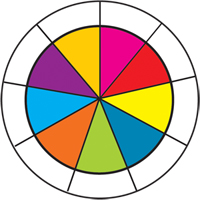Present findings from this inquiry about your teaching. Ensure qualitative data includes rich descriptions of your teaching and quantitative data is clearly presented. (WFQ 9)
In this reflection on my teaching I looked at 2 books for each of my three reading groups that make up my target learners for this inquiry. The group in made up of children reading below Green (Level 12, reading age 6 years). I looked at the word count for each book. Main sight words, main topic specific words and made a judgment on overall change. As they are all levelled texts challenge is some what obvious but this gave me a better picture of my text selection early in the year.
Rowing (Red, reading age 5.3 years)
Books 1, I like worms (Sunshine classics)
Word count: 86
Sight words: I, like, for, and, in, my, a
Sample of topic specific words: worms, lunch, tea, skinny, soup, pizza.
Book 2: Kitty Cat (PM)
Word count: 57
Sight word: here, is, a, look, at, comes, the.
Sample of topic specific words Kitty cat, hungry, butterfly, Lizard, Fat?,
Word family at, cat, fat
Teacher notes stated "Students were excited to read." "They need a lot of prompting to fix errors." "They were not looking at beginning words of sight words and were guessing, until prompted." "They struggled with I like worms due to the increased difficulty of the vocab."
Rugby (Yellow, reading age 5.6 years)
Book 1 Mothers day (PM)
Word count: 118
Sight words: Look, at, my, said, will, where, are, the, they, here, like, in, is, I, am, and, up, a, for, he, day, dad, mum,
Sample of topic specific words: Mother, card, Emma, pens, forgot, breakfast, tray.
Book 2 The little car (PM)
Word count: 123
Key sight words: Back, come, his it, will
Other sight words: said, look, my, and, the, can, go, here, is, little, where, for, big, not, see, in, went, away.
Sample of topic specific words: Rachel, Sam, car, green, leaves, garage.
Teacher notes stated "Group have come back with more confidence and are attempting more words." "Need prompting to go back and fix mistakes." "One child really struggling with topic specific words, said bucket for bowl, need word on noticing middle letters." "Did not know the word was in Mother's day." "Need to word on word family ay, ake."
Surfing (Blue, reading age 5.9)
Book 1: Open your mouth (Sunshine)
word count 185
Sight word:your, the, big, said, to, little, I'm, going, you, a, an, little, and, some, is, it, or, no, come.
Sample of topic specific words: cat, kitten, hen chick, puppy, dog, surprise, eyes, mouth, open, close, give.
Book 2: The missing socks (Ready to reads)
Words count: 205
Sight word: was, for, his, and, but, were, the, on, dad, I can't, my, are, they, no, said, she, in, the, ask, have, you, look, looked, mum, saw, taken, ran, out, through, across, into.
Sample of topic specific words: socks, Jack, Noodle, pounced, rugby, boots, bedroom, pulled, lounge.
Teacher notes stated, " they are struggling when they make errors to notice that it does not make sense." "Keep working on sight words and noticing as this is a real need."
Overall from this analysis what I have noticed are three main this:
1: There is a real difference between PM, Sunshine and Ready to reads at the same level, PMs have high sight words with limited topic specific, Sunshine have more equal sight word to topic specific and ready to read step up in complexity significantly.
2: I am not very good at reflecting on specific word errors, sound errors and comp issues. My reflections are very general and lack the detail needed to really dive into changes and issues.
3: Sight words, sight words, sight words, this is a big issue for all group but I don't spend enough time on it. I also need to be more careful in my text selection to make sure this are covered.
I also have a question for my self about text length. if 205 words is all they are exposed to is that enough? If I am not exposed to a year 3 text can I become a year 3 reader? or year 4 text and year 4 reader? What is the right level of challenge, independent and shared text for these kids and how often should they read them?













